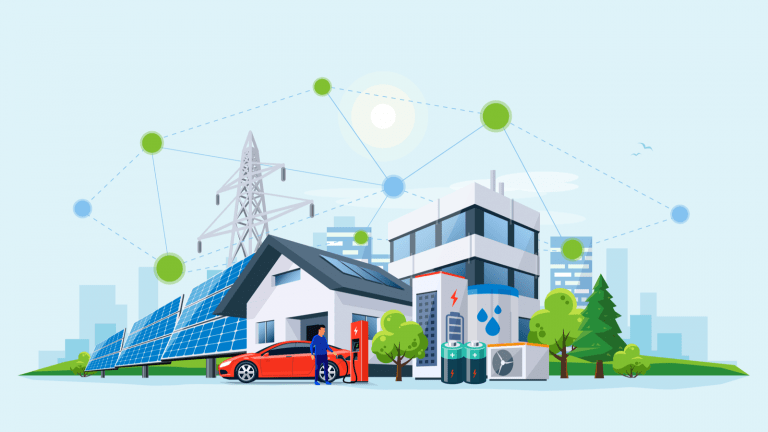In Short : “The Future of Energy: 3 Ways Renewable Energy Is Changing the Game” highlights the transformative impact of renewable energy sources. Firstly, renewables are reshaping the power grid by providing decentralized and sustainable energy, reducing reliance on traditional fossil fuels. Secondly, advancements in energy storage technologies, like batteries, ensure continuous power supply, overcoming intermittency issues of renewables. Lastly, innovative solutions, such as smart grids and demand-side management, optimize energy usage, enhancing efficiency. These changes signify a paradigm shift toward cleaner, more reliable, and efficient energy systems, shaping a sustainable future.
In Detail : The emergence of renewable energy is changing society in unexpected ways
Here are some unexpected implications of renewable energy.
Decentralization and Democratization of Energy: Gives control over energy back to society.
Innovations in Energy Storage and Integration: Natural and man-made solutions have emerged to the market.
Economic Competitiveness and Job Creation: Renewable energy is creating new jobs and stimulating the economy.
Renewable energy stocks are changing the energy market in some previously unseen ways. These changes are fundamentally altering the investment landscape for future generations, as well as kicking off trends that will have immediate ramifications on investors in the near term.
We’ve observed the explosion of interest in previously experimental technologies like hydrogen power and nuclear fusion. These forms of energy take on some of humanity’s greatest challenges in sustainability and also have immediate effects on the investment decisions available to us today.
So here is how renewable energy stocks are forever changing the landscape of the energy market for investors.
Decentralization and Democratization of Energy
Traditionally, energy production has been centralized, with large power plants feeding into national or regional grids. However, renewable energy, especially solar and wind, allows for decentralized energy production.
Households and businesses can now produce their own power, store it, and even sell it back to the grid. This decentralization is democratizing energy access and production, giving more power (literally and figuratively) to individuals and local communities. It also reduces the strain and dependency on large-scale infrastructure and enhances resilience against power outages or disasters.
In many developed countries, households can pump their unused energy back into the grid to receive direct compensation or credits toward their power bills. This decentralization also means society as a whole has more power to make greener choices, which is essential for addressing climate change.
Innovations in Energy Storage and Integration
One of the traditional criticisms of renewable energy is its intermittent nature–the sun doesn’t always shine, and the wind doesn’t always blow. However, rapid advancements in energy storage solutions, like batteries and pumped hydro storage, are making it possible to store excess energy and use it when required.
Some of the best renewable energy stocks also have major operating segments in energy storage. They provide these services in synergy with their existing services, as well as to tap into new markets.
Some energy storage solutions even leverage natural materials. For example, a novel energy storage solution has been developed using two common materials: cement and carbon black. Combined with water, they form a supercapacitor that could be integrated into building foundations or roadways, offering affordable, scalable storage for renewable energy.
This technology can stabilize energy networks by compensating for renewable energy supply fluctuations.

